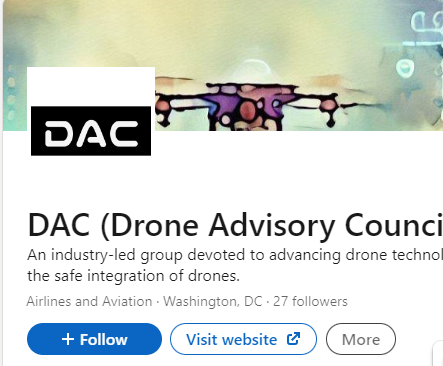The US Drone Advisory Committee (DAC) has announced its first two taskings which focus on updates to Standard Remote Identification (ID) and Stadium-Related Temporary Flight Restrictions (TFR). These taskings underscore DAC’s commitment to progress, safety, and the timely evolution of drone policies, says the industry committee.
Tasking One: Updates to Standard Remote ID Regulations
The introduction of Standard Remote Identification is a game-changer in the realm of drone regulation. This technology enables the identification of drones in flight, fostering a safer and more secure airspace, but the current regulations are laden with several issues that affect communities, law enforcement, pilots, and manufacturers – not to mention FAA compliance rates.
The focus of this tasking is to address the burden for domestic small businesses to comply with Standard RID. Ironically, the current regulations favour only the largest manufacturers. DAC aims to address opportunities to maintain security and requirements, but with a modern approach that will enable more domestic companies building drones to comply with Remote ID, and in turn create more aircraft for all pilots to utilize in a compliant manner.
Tasking Two: Enhancing Security & Compliance with Stadium TFRs
Stadium TFRs play a critical role in ensuring the safety and security of large-scale events. The DAC’s tasking reflects our dedication to enhancing security measures while accommodating the growing presence of drones. These updates are not just about restrictions; they are about intelligent, data-driven management of airspace, while also leveraging existing regulations.
By taking a first principles approach, this tasking will aim to solve the current issues with these blanket NOTAMs, such as visibility and compliance. At the same time, there are reasons why these restrictions should be broadened, such as to include more events, while also shrinking the footprint of these that restrict mass amounts of airspace on an annual basis.
With both of these taskings, the DAC’s approach is not just about needed updates to regulations, but about fostering a collaborative, open operating environment. We understand the importance of diverse perspectives and the value of data and input from all corners of the drone community. DAC encourages anyone with an interest, data, or insights to contribute to the ongoing evolution of drone policy to participate and provide feedback.
For more information, to provide input, or to get involved, please contact the DAC at info@droneadvisorycouncil.org.
For more information visit:
www.droneadvisorycouncil.org




